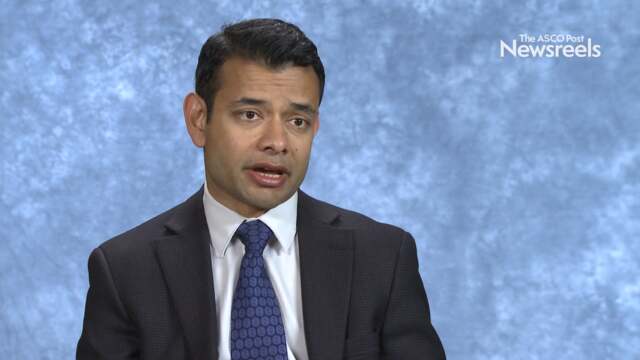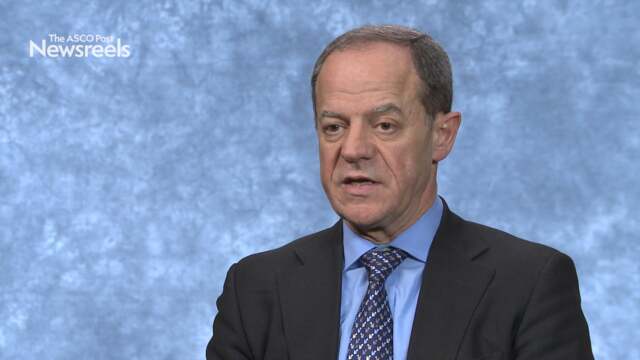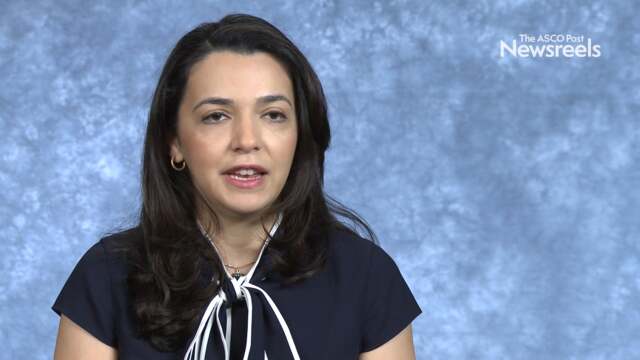Eric J. Small, MD, on Prostate Cancer: Results From the SPARTAN Trial
2018 Genitourinary Cancers Symposium
Eric J. Small, MD, of the University of California, San Francisco, discusses phase III findings on apalutamide vs placebo in patients with nonmetastatic castration-resistant prostate cancer (Abstract 161).
Sumanta K. Pal, MD, of the City of Hope Comprehensive Cancer Center, discusses phase III study findings from IMmotion151, which looked at atezolizumab plus bevacizumab vs sunitinib in untreated metastatic renal cell carcinoma (RCC), and results from a safety and efficacy trial of axitinib in combination with pembrolizumab with advanced RCC (Abstracts 578 & 579).
Nicholas D. James, MBBS, PhD, of University Hospitals Birmingham NHS Foundation Trust, discusses study findings on the addition of docetaxel to first-line hormone therapy in prostate cancer, an analysis focusing on cost-effectiveness and long-term and quality-adjusted survival (Abstract 162).
Patrick Schöffski, MD, MPH, of Catholic University Leuven, discusses findings on the effect of crizotinib on disease control in patients with advanced papillary renal cell carcinoma type 1 with MET mutations or amplification (Abstract 580).
Joaquim Bellmunt, MD, PhD, of the Dana-Farber Cancer Institute, discusses phase III 2-year follow-up findings on pembrolizumab vs investigator’s choice (paclitaxel, docetaxel, or vinflunine) in recurrent, advanced urothelial cancer (Abstract 410).
Fatima Karzai, MD, of the National Institutes of Health, discusses phase II findings on olaparib and durvalumab in metastatic castration-resistant prostate cancer in an unselected population (Abstract 163).





